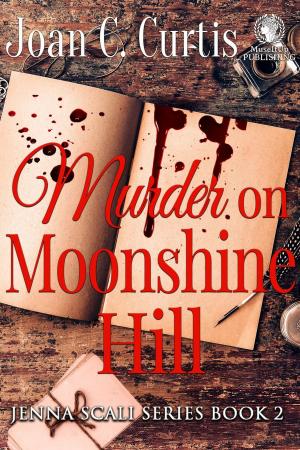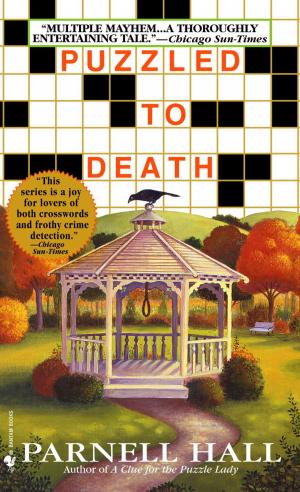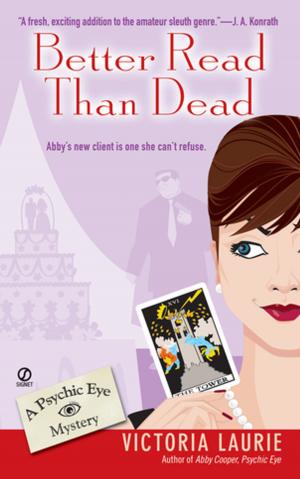| Author: | Caron Allan | ISBN: | 9781386054528 |
| Publisher: | Caron Allan | Publication: | August 13, 2017 |
| Imprint: | Language: | English |
| Author: | Caron Allan |
| ISBN: | 9781386054528 |
| Publisher: | Caron Allan |
| Publication: | August 13, 2017 |
| Imprint: | |
| Language: | English |
Review: Dottie Manderson is a gorgeous character--sassy, bright and modern (for the 1930s, that is) and very relatable. She's partnered with a detective and you just know this is going to play out satisfyingly in a 'will they/won't they' way. There's a Cluedo feel to the whole story, and I love it for that. A great read and I'm looking forward to catching up with more of Dottie, Flora et al.'
London, November 1933.
Dottie Manderson stumbles upon the body of a dying man in a deserted night-time street. As she waits for help to arrive, she holds the man's hand and tries to get him to tell her what happened. But with his last breaths he sings to her some lines from a popular stage show. But why, Dottie wonders? Why would he sing to her instead of sending a final message to his loved ones? Why didn't he name his attacker?
Dottie needs to know the answers to these questions and so, even though a particular, very annoying, young policeman is investigating the case officially, she feels compelled to carry out her own investigation into the mysterious death.
Introducing a new 1930s female sleuth in a traditional, cozy mystery series set in London between the two world wars, from Caron Allan, the writer of Criss Cross, Cross Check and Check Mate, a diary-based murder not-so-mysterious trilogy set in contemporary Britain.
Buy Night and day: a Dottie Manderson mystery now and find out just who killed Archie Dunne, and just how many eligible bachelors are on Dottie's mother's list.
Extract from Night and Day: a Dottie Manderson mystery:
When she arrived at the top of the steps, and put out her hand to take hold of the knocker, just like in a horror film the door creaked slowly open by itself to reveal a dark hallway. Dottie felt an extreme reluctance to enter, the cheerful note had gone. In fact, as soon as the door had begun to move, chills ran down her spine and her scalp prickled.
Her stomach gave an uncomfortable lurch. She knew she should leave, she felt something was wrong. But to all outward—and sensible—appearances, there was no cause for alarm, other than the light being out in the hall and the front door standing slightly ajar. She paused for a moment and took a calming breath. Her stomach lurched again; she had never felt this frightened before, and never on such small evidence.
She waited for her eyes to adjust to the low level of light, but even after a full minute, could still discern nothing. She took a step back again and looked about her, glancing up and down the almost deserted street and wondering. She could still hear the soft sound of a waltz, clearly coming from the drawing-room. She pushed thoughts of Cyril out of her head, crushing down a sudden memory of dancing with him, and she was cross with herself for thinking of him at a time like this. Her anger steadied her and she was able to think.
Perhaps she ought to try to find a neighbour, or go down the road to find a policeman walking the beat, and get him to come back with her. She need only say she was worried about her friend, or that she was nervous of the dark. She was fairly sure anyone would understand and offer to help her. Everyone knew that London policemen were the kindest and most helpful in the whole world.
But something determined rose up in her and told her not to be such a ninny. No wonder men think they can lie and cheat and go off and marry American heiresses if you go about being a delicate wilting little hothouse-flower, she told herself. So she straightened her shoulders and put up her chin and took a good strong grip on her bag and put a smile on her face. She pushed the door wide open and called out cheerily, 'Hello Susan!' as she stepped into the hall.
Review: Dottie Manderson is a gorgeous character--sassy, bright and modern (for the 1930s, that is) and very relatable. She's partnered with a detective and you just know this is going to play out satisfyingly in a 'will they/won't they' way. There's a Cluedo feel to the whole story, and I love it for that. A great read and I'm looking forward to catching up with more of Dottie, Flora et al.'
London, November 1933.
Dottie Manderson stumbles upon the body of a dying man in a deserted night-time street. As she waits for help to arrive, she holds the man's hand and tries to get him to tell her what happened. But with his last breaths he sings to her some lines from a popular stage show. But why, Dottie wonders? Why would he sing to her instead of sending a final message to his loved ones? Why didn't he name his attacker?
Dottie needs to know the answers to these questions and so, even though a particular, very annoying, young policeman is investigating the case officially, she feels compelled to carry out her own investigation into the mysterious death.
Introducing a new 1930s female sleuth in a traditional, cozy mystery series set in London between the two world wars, from Caron Allan, the writer of Criss Cross, Cross Check and Check Mate, a diary-based murder not-so-mysterious trilogy set in contemporary Britain.
Buy Night and day: a Dottie Manderson mystery now and find out just who killed Archie Dunne, and just how many eligible bachelors are on Dottie's mother's list.
Extract from Night and Day: a Dottie Manderson mystery:
When she arrived at the top of the steps, and put out her hand to take hold of the knocker, just like in a horror film the door creaked slowly open by itself to reveal a dark hallway. Dottie felt an extreme reluctance to enter, the cheerful note had gone. In fact, as soon as the door had begun to move, chills ran down her spine and her scalp prickled.
Her stomach gave an uncomfortable lurch. She knew she should leave, she felt something was wrong. But to all outward—and sensible—appearances, there was no cause for alarm, other than the light being out in the hall and the front door standing slightly ajar. She paused for a moment and took a calming breath. Her stomach lurched again; she had never felt this frightened before, and never on such small evidence.
She waited for her eyes to adjust to the low level of light, but even after a full minute, could still discern nothing. She took a step back again and looked about her, glancing up and down the almost deserted street and wondering. She could still hear the soft sound of a waltz, clearly coming from the drawing-room. She pushed thoughts of Cyril out of her head, crushing down a sudden memory of dancing with him, and she was cross with herself for thinking of him at a time like this. Her anger steadied her and she was able to think.
Perhaps she ought to try to find a neighbour, or go down the road to find a policeman walking the beat, and get him to come back with her. She need only say she was worried about her friend, or that she was nervous of the dark. She was fairly sure anyone would understand and offer to help her. Everyone knew that London policemen were the kindest and most helpful in the whole world.
But something determined rose up in her and told her not to be such a ninny. No wonder men think they can lie and cheat and go off and marry American heiresses if you go about being a delicate wilting little hothouse-flower, she told herself. So she straightened her shoulders and put up her chin and took a good strong grip on her bag and put a smile on her face. She pushed the door wide open and called out cheerily, 'Hello Susan!' as she stepped into the hall.















